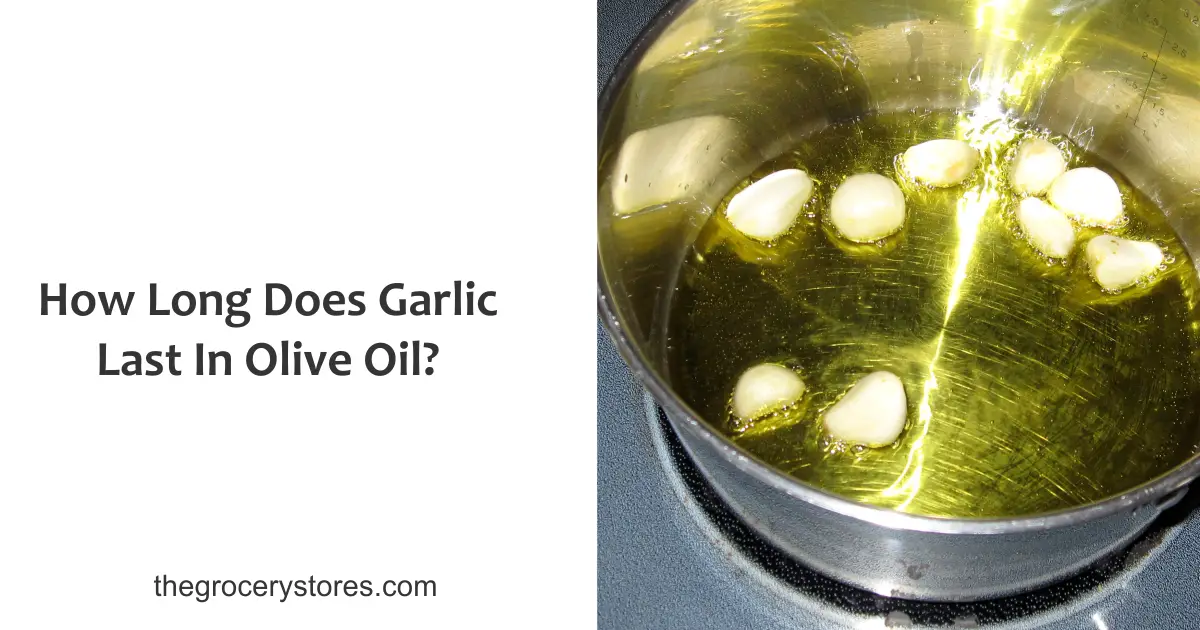When talking about growing bulb plants in your garden, one of the easiest and simplest things that comes to mind is garlic. Garlic can be grown in a decent small area of your garden, producing a lot of heads. Whether it is in your yard, or in pots or containers, garlic is happy to grow there. You can also purchase them from your local farm store.
There is nothing like too much garlic in our home, as we tend to use it in almost all our meals, marinades, and sauces. Hence, we want to preserve it to ensure it is available when needed.
They can be preserved in bulbs or whole cloves by putting them on the counter inside an open basket for aeration. Storing bulbs in dishwasher safes, terracotta, or ceramic garlic jars also works perfectly and looks pretty on the counter.
As time goes on, you notice that your garlic bulbs are beginning to get soft as their shelf life goes by. It dawns on you to consider proper preservation methods. The simple method for making garlic confit or storing garlic in oil is pretty much a French thing. Submerging garlic in extra virgin olive oil and refrigerating it will ensure it is available for about two to three weeks.
Can you preserve garlic in olive oil?
There are certain methods of preservation you can implement to ensure the availability of fresh, ready-to-use garlic all year round, such as freezing garlic in oil.
Freezing your garlic in oil is a very effective way to make it readily available when ready. You can achieve this by crushing or thinly slicing enough cloves of Isle of Wight garlic. In an ice cube tray, drop half a clove into each cube.
Pour in your olive oil and freeze. To make it easier to remove cubes when needed, you can pour them into a tupperware container or freezer bag when completely frozen. This is not only a good method of preservation but also a time saver.
Another method is the confit method, which allows you to use the garlic straight from the jar. Confit is a French method of storing garlic. When using this method of preservation, the garlic cloves are softened by being carefully cooked in olive oil, thus making it possible to be used straight from the jar.
How do you preserve chopped garlic in olive oil?
When using garlic for our dishes, it is often minced or chopped. Basically, store-bought garlic is mostly already minced, proving the popular demand for it.
Just as there is a high demand for store-bought garlic, the same goes for fresh, homemade garlic. They were more potent than the preserved ones you get at the store. So our end point now is to mince and preserve our own garlic at home.
First, we look at how to mince garlic. Let’s begin with the entire, freshly peeled garlic clove. The head of fresh, unpeeled garlic must be kept apart from the cloves and peeled separately.
After peeling, it’s chopped . You can do this manually by hand with a knife, garlic press, or grater for small quantities of garlic, or you can use your food processor or blender for a larger quantity. Do This is done till you get your desired consistency, either from a fine paste or a chunky minced consistency.
When it comes to preservation, store-bought minced garlic is often stored in oil and vinegar. The same is applicable to home-made chopped garlic. The job of the oil is to protect the garlic from the air, thus helping to preserve its flavor and color.
Preservatives are added to pre-minced garlic in oil that has been purchased from a store. When employing this approach at home, it is crucial to keep a note of how long your garlic has been in the freezer or refrigerator.
How long can I store roasted garlic in olive oil?
One of the very easy and affordable ways to add flavor to your meal is by adding roasted garlic. It is an already established, undisputed fact that garlic does a great deal for our meals when it comes to flavoring.
There are several ways to roast garlic, but let’s look at these three:
- Oven roasted garlic in foil.
- Oven roasting garlic in a muffin pan without using foil.
- Pan roasted garlic.
Storing roasted garlic is not all that complicated as it may appear. There are a few ways to do this.
- freezing After roasting the garlic, which is now cool, you should peel off the papery skin from it. The cloves should now be arranged on a baking sheet and frozen. These cloves, when frozen, can then be transferred to a freezer bag or container. How many cloves you remove at once is up to you. Before using it, let it defrost for a few minutes at room temperature.
- Store roasted garlic in the fridge with olive oil. This method is used to store roasted garlic you want to use in about a period of two weeks and no more. Roasted garlic cloves that have been cooled and peeled should be put in a canning jar. Add enough top-quality extra virgin olive oil to soak completely and cover the garlic jar. Store it in your fridge with a tight-fitting cover for no more than two weeks. The olive oil serves as a source of preservative and, by separating it from the air, stops the garlic from going bad. It also serves as a sealant for roasted garlic, if you will. thereby preventing oxidation, degradation, and mold growth.
It is important to note that you should not store garlic in olive oil at room temperature as this provides a perfect condition for botulism.
Can you get botulism from garlic in olive oil?
It is important that we know the different steps, procedures involved and precautions to take when storing our produce, especially with a particular technique. Despite the popularity of storing garlic in oil, improper precautionary measures may lead to significant negative effects.
Preserving garlic in oil at room temperature can cause botulism. Fresh garlic preserved oil should be prepared and kept in the refrigerator at a temperature of 40°F or less. When packaging in glass or plastic freezer jars, ensure that you leave a 1-inch headspace. Also, ensure you date, label, and freeze.
How can you tell if garlic has botulism?
Some of the potential signs of lethal food poisoning known as botulism in humans are blurred vision, speech impediment, breathing difficulties, and gradual paralysis. A third of people diagnosed with botulism may pass away if they do not get proper medical attention.
The soil contains botulism spores, which are a common occurrence in nature. Garlic bulbs are prone to picking up botulism spores due to their underground growth. Botulinum garlic is harmless until it grows in an airless, humid, warm environment and produces neurotoxin, at which point it becomes extremely dangerous.
There are several ways to know that your garlic has gone bad, like inspecting the color. Naturally, the color of garlic is white or sort of, but if it turns brown, you should not use it anymore. Another is feelings.
Your garlic should be firm, but if it feels mushy or brittle, you should throw it out. Also, the smell Everyone knows the smell of garlic and if by any means it’s developed a different smell, do yourself good by throwing it out.
How do you preserve garlic for a long time?
You are about to find out some of the best methods for keeping your garlic around for a long period of time. There is also advice on how to freeze peeled garlic, prepare recipes, and preserve it. As you may know, garlic is a very important ingredient in many sumptuous flavored dishes. Relatively, it is also very easy to grow in our small garden spaces.
There are several methods for preserving garlic and keeping the flavor intact, but the most important rule is to keep them in a well-ventilated, cool, dark place. They prefer a chilly, dim lighting environment like other alliums (onions, leeks, etc.). The garlic bulb should be kept whole and preserved in a mesh bag, basket, or paper bag.
When properly kept, and in whole, they can survive for months. If you have a few heads and won’t be using them soon, this method is very effective to keep them for a while. And the moment a few cloves are removed from the head, the time bomb starts to tick.
Do you have to refrigerate garlic-infused olive oil?
Apart from the strong affinity between garlic and olive oil, the infusion of this duo really brings their flavors together. The bad news is that the bacteria C. botulinum can flourish in the oil when fresh garlic is added as there is no air supply and there is a suitable temperature, causing food poisoning.
The fact is that microorganisms cannot thrive effectively in very cold temperatures. The refrigerator slows down their growth. When cold, olive oil becomes semi-solid, unlike other even refrigerated infused oils, which should be discarded after a week, and sooner if they become discolored, bubble, smell off, or appear murky. vegetable oils that stay solid.
Even infused oils that have been refrigerated should be discarded after a week, and you should do so sooner if they become discolored, bubble, smell, or appear murky.
How do you preserve fresh garlic in a jar?
One of the easiest ways to save your garlic harvest is to preserve it. The feeling of having fresh garlic all year long is on a whole new level.
To preserve your garlic in a jar, you would want to first break up the bulb into cloves and peel the cloves. This is technically the most time-consuming part. However, make certain that the cloves are properly peeled and separated from the peel. Now you would want to put it in a jar with a good lid. You can now pour white vinegar over the cloves of garlic in the jar and cover the lid properly. This vinegar will kill any microorganisms that may have spoiled your garlic, keeping it safe. Don’t forget to refrigerate.
When you want to use your garlic, do not forget to wash off the vinegar from the quantity you want to use and put it back into the refrigerator.
How long does jarred garlic last?
The period of time garlic will last is fully dependent on the method of preservation. Garlic’s shelf life is entirely dependent on the method of preservation. Fresh garlic does not have any expiration date.
Peeled or chopped garlic can last for a period of about 18 days in the fridge and even more time in the freezer. The same goes for frozen garlic. Typically, minced garlic that is jarred may be valid for about a few months, and three months in the fridge. Commercial jarred garlic will last a long time due to the presence of preservatives like acids to extend its shelf life.

